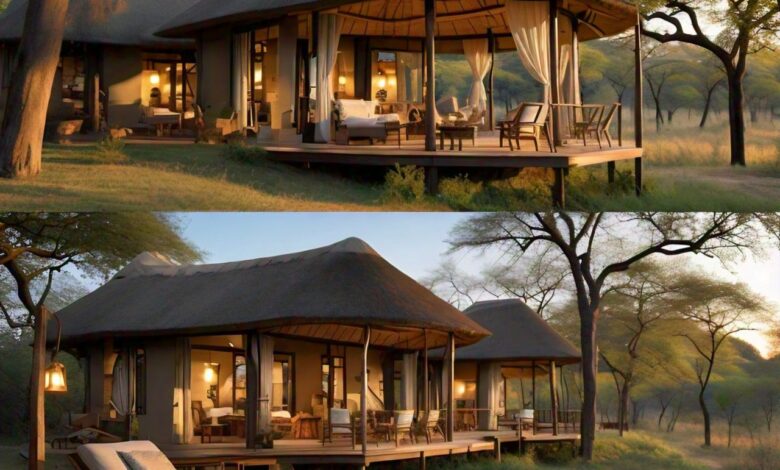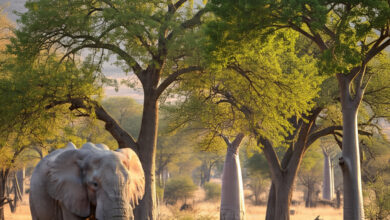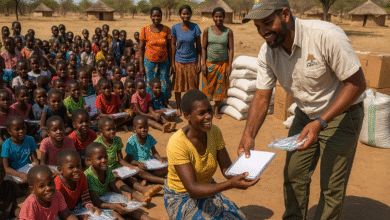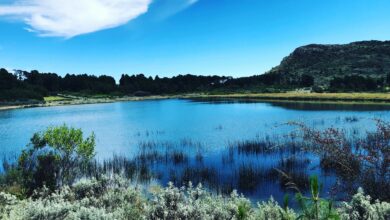Zimbabwe’s Safari Industry: A Thriving Sector with Room for Growth.

Overview of Zimbabwe’s Safari Industry
Zimbabwe’s safari industry has emerged as a crucial component of the country’s economy. It plays a vital role in the nation’s development and growth. As the third-largest sector after mining and agriculture, tourism has shown remarkable resilience and potential for expansion 1. Furthermore, the industry’s success can be attributed to Zimbabwe’s rich natural heritage, wildlife reserve and conservation. This features numerous national parks and attractions. These include Hwange National Park, Mana Pools, Gonarezhou National Park, Victoria Falls, Lake Kariba and the Great Zimbabwe National Monument 1.
Recent Growth and Performance affecting the Safari Industry
In 2022, Zimbabwe witnessed a significant surge in tourist arrivals. Numbers rose by 174 percent compared to the previous year. This remarkable growth saw the total number of visitors increase from 380,820 in 2021 to 1,043,781 in 2022 1. Additionally, the recovery in overseas markets following the end of COVID-19 lockdowns contributed substantially to this increase. Also, while most visitors (66%) came from within Africa, the industry also attracted tourists from the Americas (10%), Europe (17%), and Asia (5%) 1. Of these tourists, the majority of them travel to engage in the safari experience.
Moreover, the economic impact of this growth was substantial. This tourism sector generated $911 million in 2022, a significant increase from the $397 million recorded in 2021 1. Therefore, these figures demonstrate the industry’s potential to play a crucial role in Zimbabwe’s economic recovery and development. Also, investment in the safari experience by tourism players will improve this growth and performance.
Opportunities for Safari Growth and Development
However, despite its current success, the safari industry in Zimbabwe presents numerous opportunities for further growth and expansion. One area of focus is Victoria Falls, where relatively low real estate prices offer opportunities for constructing hotels and lodges 1. Also, the designation of Victoria Falls as a Tourism Special Economic Zone and International Financial Center could attract much-needed investments, potentially boosting the industry’s capacity and appeal 1.
Furthermore, infrastructure development also presents opportunities for growth. The government has taken steps to enhance Victoria Falls’ airport facilities. This includes extending the runway to accommodate all varieties of jumbo jets and creating a new passenger terminal 1. However, local infrastructure (road, rail, water, telecoms, and energy) remains outdated and in need of rehabilitation, providing potential areas for investment and improvement 1. Also, the private sector is working to safari improve accommodation for safari tourists.
Emerging Trends and Specialised Opportunities
As the world moves towards sustainable tourism, Zimbabwe’s safari industry has opportunities to capitalise on this trend. There is scope to offer specialised training on sustainable tourism practices including wildlife conservation, as well as direct investment in eco-travel and adventure travel businesses 1. These emerging trends align with international standards and could position Zimbabwe’s safari industry as a leader in environmentally conscious tourism.
Additionally, the government has identified opportunities in various sectors related to the tourism industry. These include the construction of conference and convention centres, resorts, casinos and shopping malls 1. These developments could further enhance the overall experience offered by Zimbabwe’s safari industry. Furthermore, this will cater to both high-end luxury tourists and potentially developing locations serving the middle-class market as visitor numbers increase 1.
Challenges and Considerations
Despite the growth and potential, the safari industry in Zimbabwe faces certain challenges. One significant challenge lies in wildlife photo and hunting tourism. This offers enormous growth potential but has been affected by difficulties in obtaining trophy hunting licenses from the government. Additionally, U.S. law prohibits the importation of elephant trophies into the United States, limiting the potential for American visitors interested in big game hunting 1.
So, these challenges highlight the importance of balancing economic development with environmental conservation and ethical considerations in the safari industry.
Conclusion
Zimbabwe’s safari industry presents a compelling story of resilience and growth. From its emergence as a crucial sector of the economy to its current status as a thriving industry, the safari business has shown remarkable adaptability and potential. With opportunities ranging from infrastructure development to embracing sustainable tourism practices, the future of Zimbabwe’s safari industry looks promising.
However, it is essential to address ongoing challenges and balance growth with environmental conservation and ethical considerations. As the industry continues to evolve, it will be crucial to maintain its position as a leader in responsible tourism while capitalising on opportunities for further expansion and development.
Therefore, by leveraging its natural attractions, embracing sustainable practices and addressing current challenges, Zimbabwe’s safari industry stands poised to continue its impressive growth trajectory, contributing significantly to the country’s economic recovery and development.




